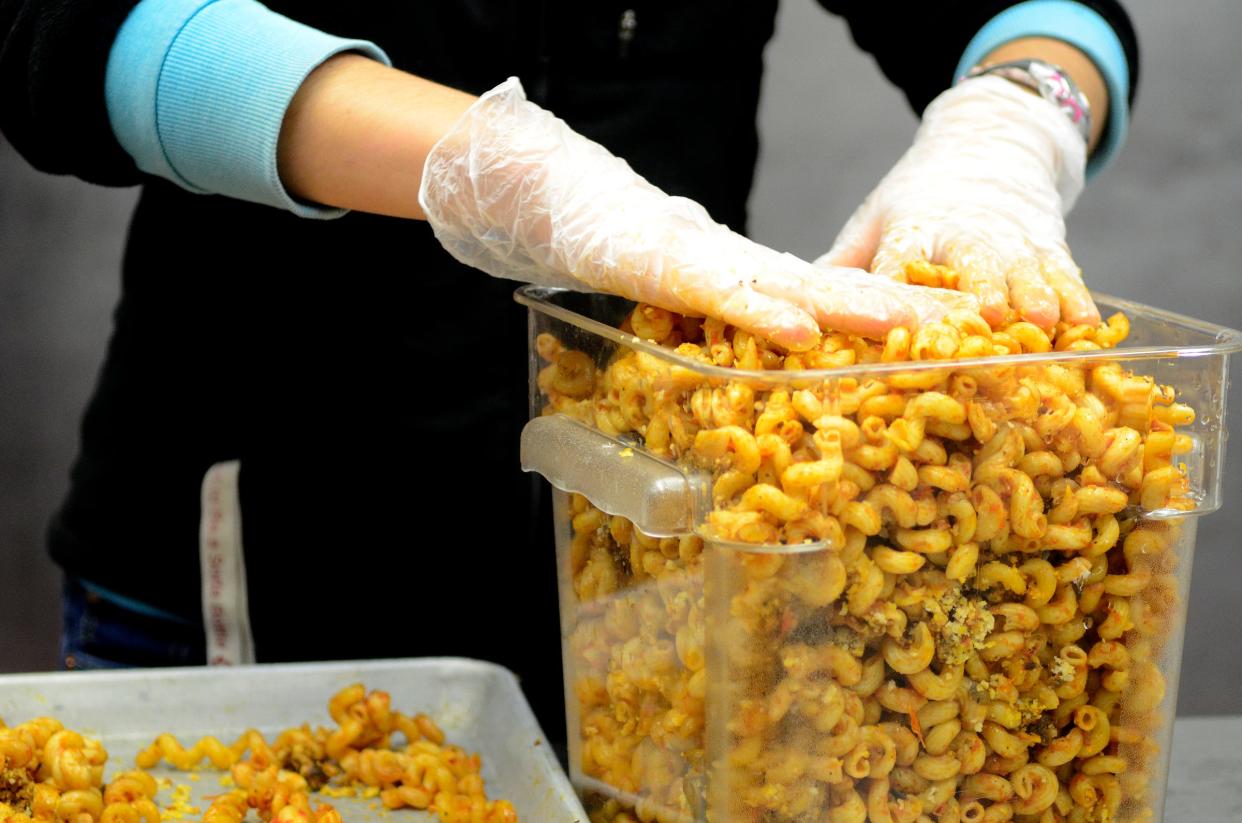What about all that leftover Super Bowl tailgating party food? It can be donated

On Feb. 12, hours before Super Bowl LVII kicks off at State Farm Stadium in Glendale, the Players Tailgate Party will take place nearby, hosted by Bobby Flay.
This celebrity chef luxury event stands out in a critical way: After the event, all of the surplus food that was not used will be donated to a local nonprofit that fights food insecurity, instead of throwing it away.
This effort began three years ago at Super Bowl LIV in Miami when 5,000 pounds of unused food was redistributed to Miami Rescue Mission. Although it is far from enough to solve the problem, food recovery is an important step in the decades-long fight to address hunger and food insecurity in the United States.
Millions go hungry, yet we throw food away
At the institutional and commercial level, about 26 million tons of food goes to waste every year in our country.
This includes farm fields, food distribution facilities and its transportation of food, grocery stores, corporate dining, large events like the Players Tailgate and large dining facilities like those at State Farm Stadium and other stadiums across the U.S.
In 2019, about 35% of food went uneaten. Food is the number one material in U.S. landfills.
Another view:How does Arizona benefit from Super Bowl Sunday?
Paradoxically, tens of millions of people are considered food insecure, meaning they are not sure where their next meal will come from, or when they might have their next meal. In Arizona, nearly 800,000 people, or more than 1 in 10, are food insecure.
Food recovery is an underutilized option that is open to food businesses and events. The 2022 federal passage of the Food Donation Improvement Act expands liability protections to businesses who donate surplus food, including those made to an individual by a retail grocer, agricultural producer (farmers), restaurants, caterers, wholesalers and higher education.
Events show how food recovery can work
Large-scale celebrity events have a lot of eyes on them and can use their status to show others within their industry that food recovery, not food waste, must be the option of choice.
In Phoenix, for instance, André House serves between 550 and 650 people dinner six days a week and has the capacity to accept large amounts of raw ingredients to ensure their community can have a warm meal.
In 2019 Operation BBQ Relief, which will attend the Players Tailgate, donated more than 900 meals to André House when their national Breaking Bread Tour stopped there.
Elsewhere, Specialty Food Association donated more than 95,000 pounds of perishable and nonperishable food after the conclusion of their signature one-day Winter Fancy Food Show in San Francisco over a three-year period.
In Atlanta, a local farmer was paid a living wage for his time to harvest and transport more than 15,000 pounds of fresh, healthy produce that he in turn donated.
We also must address economic insecurity
Food recovery is a cost-effective solution that will help our environment (food waste in landfills is the third-largest CO₂ contributor behind the United States and China), and it dramatically increases access to more food to those in need.
However, food recovery alone will not lessen the number of people who are food insecure – until we address economic insecurity.
In 2022 when the voter-approved minimum wage increase in Arizona rose to $12.15, nearly 880,000 Arizonans benefited from the increase, according to OxFam. We must continue to fight for a higher minimum wage at the state level and critically at the federal level.
Until living wages can be secured for everyone working in the United States, food recovery is the best option for redirecting perfectly good food to where it is needed most. That process must be normalized to improve the lives of millions of people in the U.S.
Regina Anderson is executive director of Food Recovery Network, a nonprofit that works with college students and other stakeholders to recover and donate food. Reach her at regina.anderson@foodrecoverynetwork.org.
This article originally appeared on Arizona Republic: Bobby Flay's tailgating party leftovers will help the hungry

